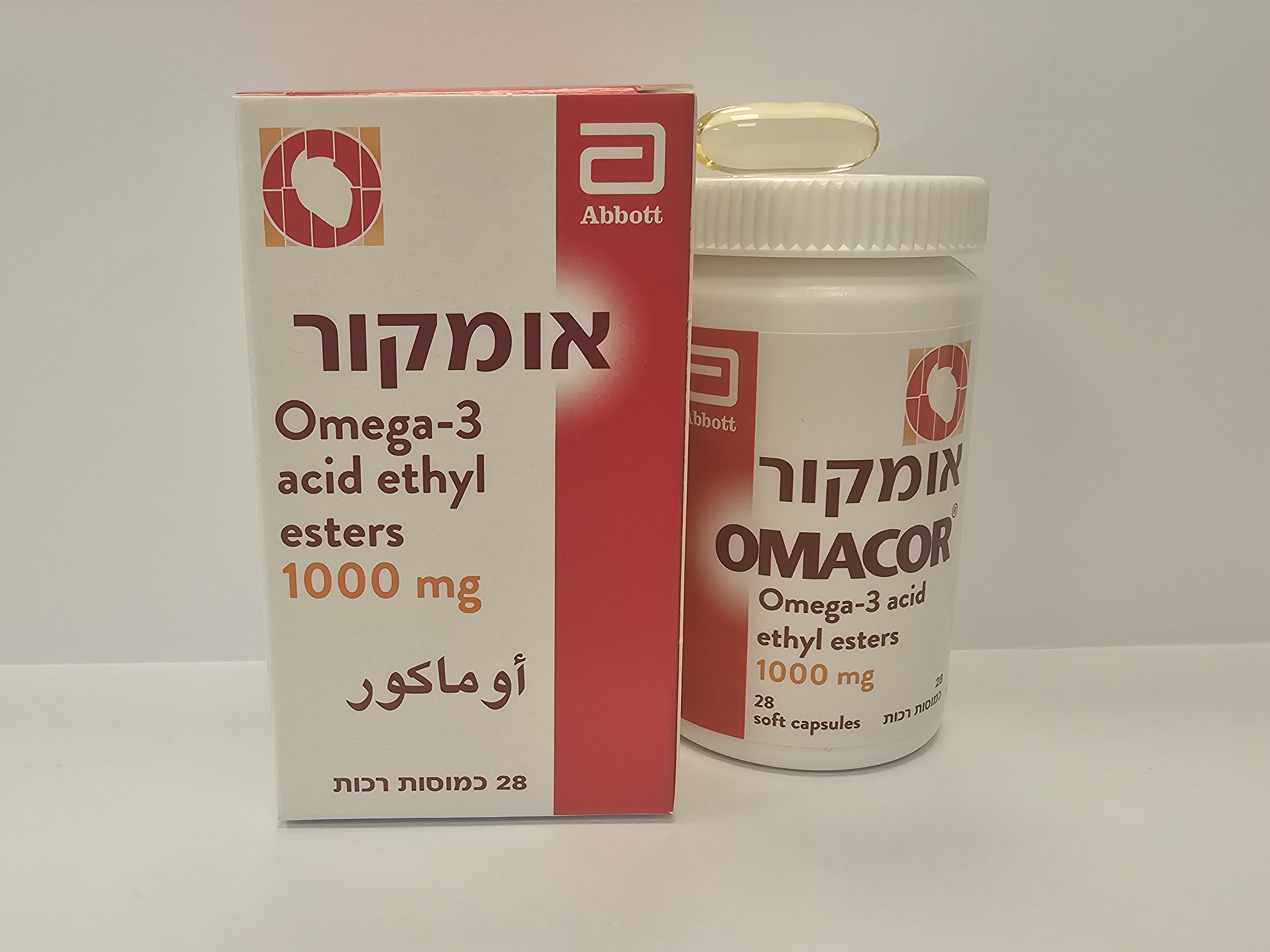Quest for the right Drug

אומקור ® OMACOR ® (OMEGA-3 ACID ETHYL ESTERS)
תרופה במרשם
תרופה בסל
נרקוטיקה
ציטוטוקסיקה
צורת מתן:
פומי : PER OS
צורת מינון:
קפסולות : CAPSULES
עלון לרופא
מינוניםPosology התוויות
Indications תופעות לוואי
Adverse reactions התוויות נגד
Contraindications אינטראקציות
Interactions מינון יתר
Overdose הריון/הנקה
Pregnancy & Lactation אוכלוסיות מיוחדות
Special populations תכונות פרמקולוגיות
Pharmacological properties מידע רוקחי
Pharmaceutical particulars אזהרת שימוש
Special Warning עלון לרופא
Physicians Leaflet
Pharmacological properties : תכונות פרמקולוגיות
Pharmacodynamic Properties
5.1 Pharmacodynamic properties Pharmacotherapeutic group: Omega-3-triglycerides including other esters and acids, ATC code : C10AX06 The omega-3 series polyunsaturated fatty acids, eicosapentaenoic acid (EPA) and docosahexaenoic acid (DHA), are essential fatty acids. Omacor is active on the plasma lipids by lowering triglyceride levels as a result of a fall in VLDL (very low density lipoprotein), and the substance is also active on haemostasis and blood pressure. Omacor reduces the synthesis of triglycerides in the liver because EPA and DHA are poor substrates for the enzymes responsible for triglyceride synthesis and they inhibit esterification of other fatty acids. The increase in peroxisomes of β-oxidation of fatty acids in the liver also contributes to the fall in triglycerides, by reducing the quantity of free fatty acids available for their synthesis. The inhibition of this synthesis lowers VLDL. Omacor increases LDL-cholesterol in some patients with hypertriglyceridaemia. A rise in HDL-cholesterol is only small, significantly smaller than seen after administration of fibrates, and not consistent. The long-term lipid-lowering effect (after more than one year) is not known. Otherwise there is no strong evidence that lowering triglycerides reduces the risk of ischaemic heart disease. During treatment with Omacor, there is a fall in thromboxane A2 production and a slight increase in bleeding time. No significant effect has been observed on the other coagulation factors.
Pharmacokinetic Properties
5.2 Pharmacokinetic properties During and after absorption, there are three main pathways for the metabolism of the omega-3 fatty acids: - the fatty acids are first transported to the liver where they are incorporated into various categories of lipoproteins and then channelled to the peripheral lipid stores; - the cell membrane phospholipids are replaced by lipoprotein phospholipids and the fatty acids can then act as precursors for various eicosanoids; - the majority are oxidised to meet energy requirements. The concentration of omega-3 fatty acids, EPA and DHA, in the plasma phospholipids corresponds to the EPA and DHA incorporated into the cell membranes. Animal pharmacokinetic studies have shown that there is complete hydrolysis of the ethyl ester, accompanied by satisfactory absorption and incorporation of EPA and DHA into the plasma phospholipids and cholesterol esters.

שימוש לפי פנקס קופ''ח כללית 1994
לא צוין
תאריך הכללה מקורי בסל
לא צוין
הגבלות
לא צוין
מידע נוסף
